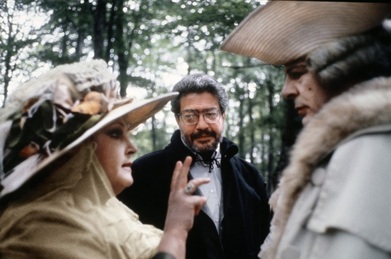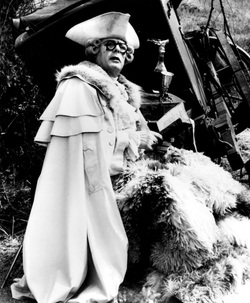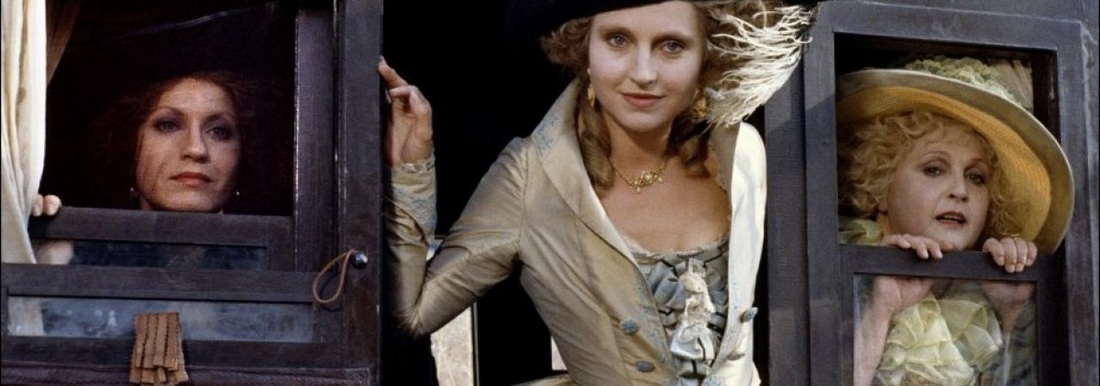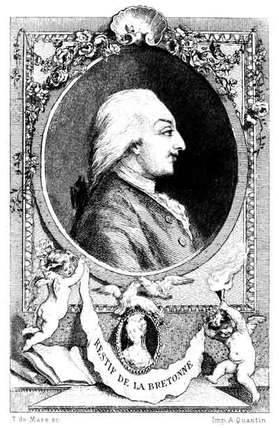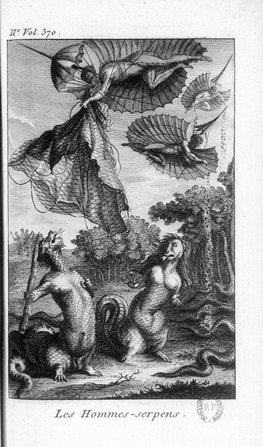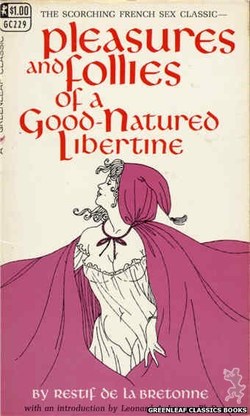La Nuit de Varennes: Pt.2
|
Back in 1992 French President Francois Mitterand selected two movies as representing what he considered to be the best cinematic approach to the French revolution. One was Jean Renoir's 1939 classic La Marseilles. The other was Italian director Ettole Scola's La Nuit de Varennes, a movie modelled on John Ford's famous 1939 western Stagecoach. And Ford's movie itself was based on a short story by the nineteenth century French author Guy de Maupassant.
The small town of Varennes has become famous as the place where in 1791 King Louis XVI, his wife Marie Antoinette and the royal children were captured as they attempted to escape their imprisonment at the hands of Parisian revolutionaries. Their escape attempt was made in a large and luxurious coach. But Scola's movie does not focus on the royal coach and its famous and ultimately doomed passengers. Instead he focuses on an entirely fictional coach carrying a mixture of actual historical figures and several fictional ones. This coach trails the royal family by a few miles and ends up in Varennes just after they have been detained in that town. |
The DirectorEttore Scola was an Italian director who worked alongside Fellini and Rosselini in Rome's famed Cinecitta Studios during the heyday of Italilian cinema from the 1950s to the mid- 1970s. He won the Best Director award at the 1976 Cannes Festival. His almost 40 films include 'A Special Day', 'Ugly, Diirty and Bad' and 'We All Loved Each Other So Much.'
|
The ActorOne of the most intriguing aspects of the movie's casting was Marcello Mastroianni's performance as the famous but ageing Casanova, notorious and also admired for his libertine ways.
|
The TemplateELa Nuit de Varennes is based on on John Ford's classic 1939 western, 'Stagecoach.' Ford's movie -itself based on a famous short story by de Maupassant - features a group of disparate travellers ( a gambler, a prostitute with a heart of gold, a pillar of society etc) flung together in a stagecoach on a journey that becomes increasingly dangerous.
|
The Movie's Fictional Spin on the Royal Flight to Varennes
Scola's movie, like the actual historical event, is about a coachload of passengers and their journey, on 20-21 June 1791, to Varennes-en-Argonne, a small town split by the river Aire. The real-life passengers were KIng Louis XVI of France, his wife Marie-Antoinette and the royal children. Their intention: to escape their virtual imprisonment at the Tulieres Palace in Paris at the hands of the revolutionaries by fleeing to Montmédy in Lorraine, and there assemble forces to restore royal power. The passengers in La Nuit de Varennes, however, were certainly the royal family. Instead they were a mix of the fictional and the historical, and the varying purposes of their journey were entirely fictional.
The movie's historical figures included
The movie's historical figures included
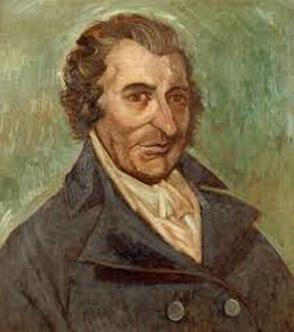 Thomas Paine
Thomas Paine
Thomas Paine was one of the leading intellectual figures in the revilutionary era of the late eighteenth Century. Born and educated in England, he played influential roles in both the American and the French Revolutions. Benjamin Franklin helped him emigrate to Amereica in 1774. His journalistic talents resulted in the 1776 best-selling pamphlet Common Sense, in which he condemned the British monarchy and government, and argued for American independence from Britain and the establishment of a republican system of government.
In 1787 Paine left the USA for Europe, and resumed his role as a revolutionary propagandist., eventually moving to Paris to participate in the revolutionary upheavals in France.
He was made an honorary citizen and even elcted to the revolutionary assembly, the Convention. But his opposition to the Terror and the execution of King Louis XVI was him arrested, imprisoned and condemened to death on trumped-up charges of treason. Only the intervention of US President James Monroe saved him. On his feturn to the USA Paine faded into eventual obscurity and poverty.
i
In 1787 Paine left the USA for Europe, and resumed his role as a revolutionary propagandist., eventually moving to Paris to participate in the revolutionary upheavals in France.
He was made an honorary citizen and even elcted to the revolutionary assembly, the Convention. But his opposition to the Terror and the execution of King Louis XVI was him arrested, imprisoned and condemened to death on trumped-up charges of treason. Only the intervention of US President James Monroe saved him. On his feturn to the USA Paine faded into eventual obscurity and poverty.
i
